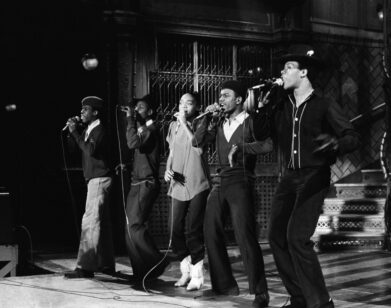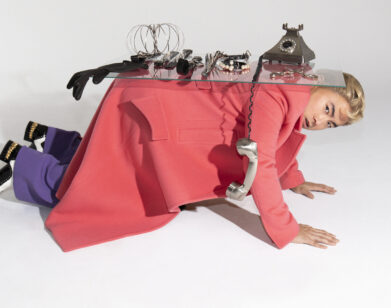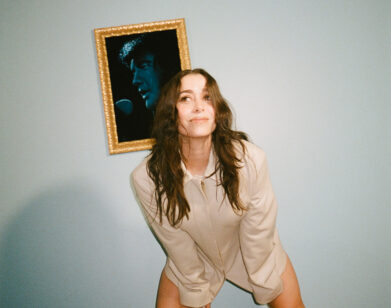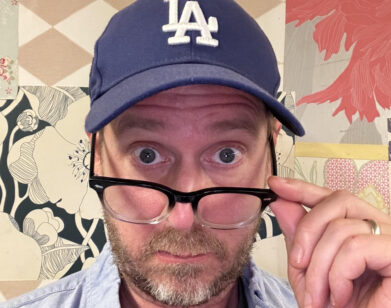In Conversation
Nasim Pedrad on Chad and the Cult of Cringe
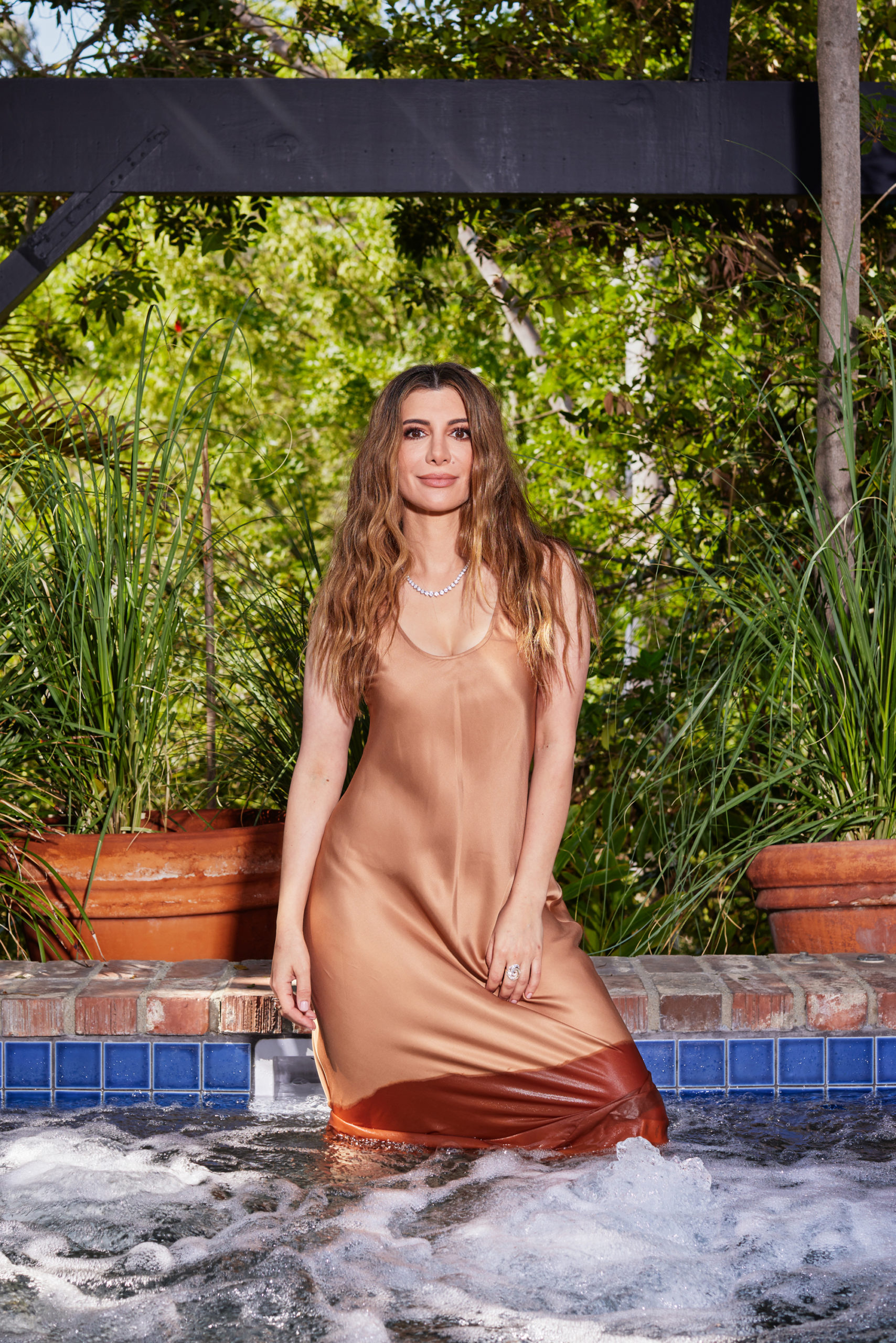
Nasim Pedrad knows how to play young. Over five years as a repertory cast member on Saturday Night Live, the comedian made a name for herself through her uncanny embodiment of adolescent characters whose crippling unease in their own skin and unnerving touch of adult savvy never fail to mortify and delight audiences. Time and again, Pedrad—who stands at a whopping 5 foot 1—adorned herself in the trappings of pre-teendom with ease: lanky limbs, giant backpacks, and, above all, a burning desire to be cool.
After leaving SNL in 2014, Pedrad moved on to more mature fare, recasting herself as a wry, no-nonsense romantic interest in sitcoms like New Girl and Mulaney, and making cameos on The Mindy Project and Curb Your Enthusiasm. But this spring, the comedian returned to her roots as the star of Chad, a coming-of-age comedy about a 14-year-old Persian boy struggling to reconcile his family’s heritage with the American high school experience. The show, which Pedrad also created, is unflinching in its commitment to cringe: Chad fumbles his way through delicate racial terrain and awkward romantic encounters with equal ineptitude. Despite these persistent failures—to reconcile his otherness, to fit in—Chad never falters in his earnest hope that tomorrow will be a better day. That, Pedrad tells her former New Girl co-star Lamorne Morris, is the magic of youth. —MARA VEITCH
———
LAMORNE MORRIS: It is shocking that I’m supposed to be interviewing you, because I am not to be taken seriously.
NASIM PEDRAD: I could not agree with that more.
MORRIS: Are you sure about this?
PEDRAD: I’m excited to be interviewed by someone who really gets Chad.
MORRIS: It’s probably going to go down as one of the greatest shows of all time.
PEDRAD: Nothing is more touching than that, coming from someone as funny as you.
MORRIS: The question that’s probably on everyone’s mind is, why am I not in the show? Are you mad at me for something?
PEDRAD: If you were available, I would snatch you in a second.
MORRIS: A lot of the shows about the high school experience come from a pretty generic standpoint. This one obviously has many layers to it. On the surface, you play a 14-year-old boy, but you also tackle race issues, cultural issues, and gender issues. What made you want to create something like this?
PEDRAD: I wanted to create a character that I knew I could have a lot of fun playing. In some ways I was chasing the joy we had working together on New Girl, where you’re laughing a lot and everyone shares a sensibility. When you’re putting that many hours into something, you want it to be fun. With Chad, the genesis came from wanting to explore the awkwardness of my own adolescence. I felt there was a lot to mine there.
MORRIS: You’re referring to when you were a 14-year-old boy?
PEDRAD: Correct. I would say I was a 14-year-old tomboy. I thought it would be a cool experiment to tell a coming of age story where the teenager at the center of it is played by an adult who’s in on the joke. You can push things so much further when the audience knows that they’re not sitting there laughing at an actual Iranian child suffering through these adolescent moments, but rather an adult who has some distance from that time and some perspective. I just pulled a lot from my own life and my experience as an immigrant kid feeling caught between two cultures. I mean, I wasn’t a pathological liar like Chad, and I certainly was not as poorly behaved as he can be. But even with Chad’s flaws, the hope is people can understand that it’s coming from such a desperate and relatable place.
MORRIS: Part of you wants to cry out of embarrassment for Chad. You’re like, “Jesus, why would he do this?” He’s such a cringy character, but yet you can’t turn away. How do you make someone want to watch that?
PEDRAD: When you’re shooting a half hour show, the comedy often comes from the actual written material. But I also wanted to do a character study in between the lines. I was excited to explore a character whose humor often lives in that negative space. A lot of humor comes from the fact that he still doesn’t lose hope that tomorrow could be different.
MORRIS: Chad mishandles a lot of social situations. One of my favorite examples is the breakup episode.
PEDRAD: Right, where he fetishizes Black culture.
MORRIS: One hundred percent. I’ve been in that scenario a bunch of times, where someone who barely knows me is like, “Dude, you’re so cool.” I’m like, “What? All right, man.” It’s awkward. Chad takes it to a whole other level, and to me, it’s one of the best episodes of television. Were you more nervous writing that or having people watch it?
PEDRAD: I wasn’t nervous, because I didn’t feel that Chad’s unawareness was inherently racist, and because he gets called out for it in the episode. So it wasn’t about promoting that behavior. To him, Ikrimah is the coolest guy his mom could be dating, and he wants that relationship to continue at all costs because he’s so insecure.
MORRIS: Some of these characters are so specific, and they actually feel familiar to me. Did you use real folks as inspiration?
PEDRAD: Specificity is critical, and I was lucky enough to base a lot of these characters on people that I know well. Chad’s uncle is based on my own father, who is the sweetest man on planet Earth, but this character is also the most foreign. Chad is at a point in his life where otherness feels like a real social liability. That’s something that I drew from my own life. I loved my Persian culture, but I was at times trying to get away from it too. I based another character on my sister.
MORRIS: Your sister is a writer and producer on New Girl. What is your dynamic like?
PEDRAD: The character Nikki is based on her effortless charm and social grace. Even though we share the same background and parents, she didn’t seem to struggle with being an immigrant kid the way that I did. And so I felt especially for a character like Chad who’s already frustrated, things aren’t going his way, it would be demoralizing in a funny way to see his younger sister just do laps around him when it comes to fitting in.
MORRIS: Now, tell me about physically getting into this character. Hair and makeup, the way Chad walks, all of that.
PEDRAD: The preparation to put on the wig is one of the more time-consuming parts, because I basically have to hide all of my long ass hair under that wig. Then there’s the binder I wear and the baggy clothes, which then lead to performance choices like his posture, his vocal register, and all his little idiosyncrasies. That process helps me just get away from my adult female self.
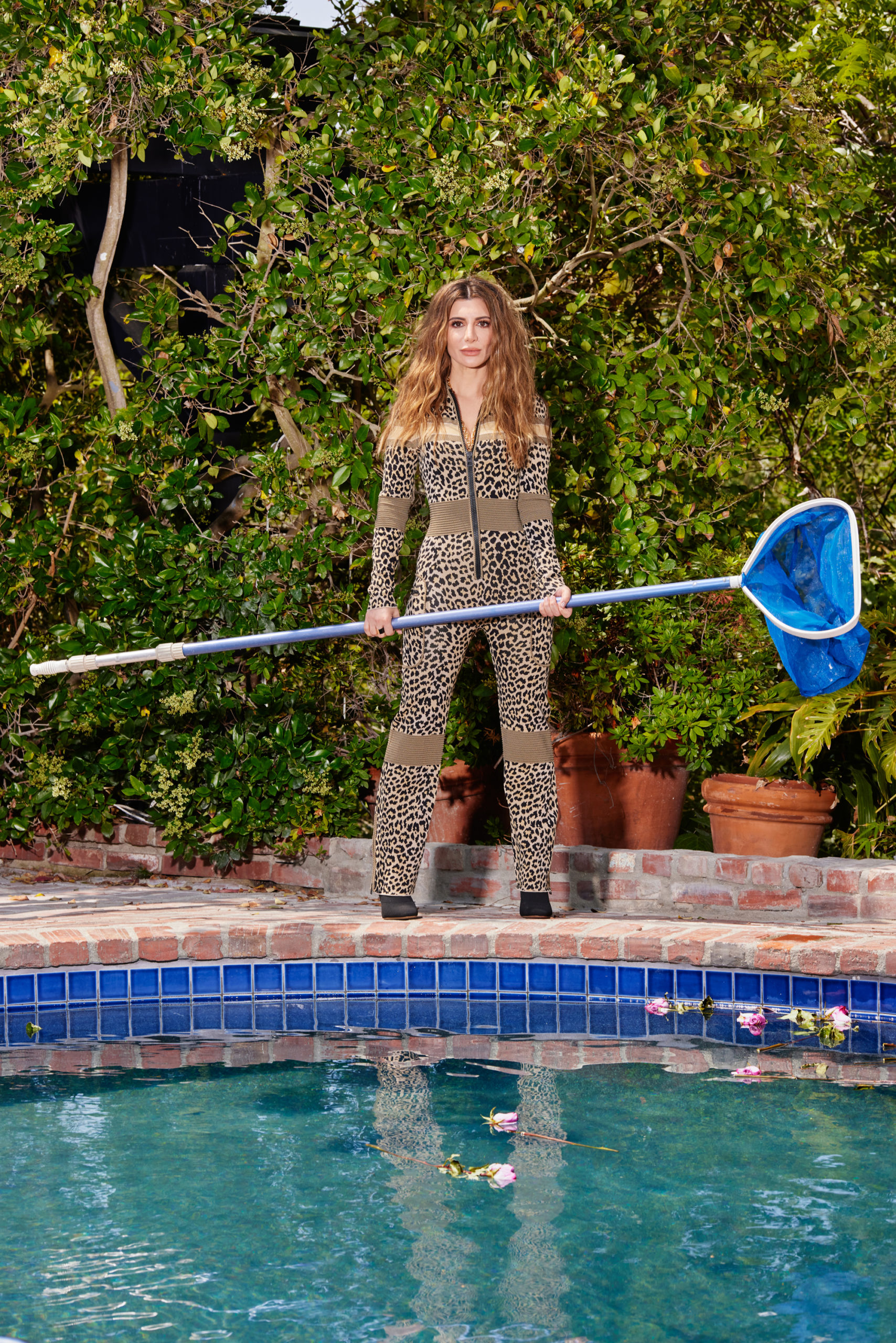
MORRIS: Have there been any negative responses to you playing a boy?
PEDRAD: A lot of people who haven’t watched the show and are confused about what the character even is. Some people thought he was transgender. But yeah, there’s no angle other than an earnest portrayal of a young boy.
MORRIS: People are genuinely confused, and the thing that I love most about the show is that you’re not addressing it. You’re just playing the hell out of the character. Are you doing a second season?
PEDRAD: We’re officially picked up, yes. I get to start next week in the writers’ room.
MORRIS: Congratulations. That is a huge deal. What do you want to see? Well, I mean, I guess, I know you’ve put some thought into it already, but where do you want to see Chad going without giving away too much?
PEDRAD: Does he fall in love? Does he go to find his dad? Does he grow in incremental ways? Does he learn anything from the mistakes he’s made? There’s just so much to mine there, and having gotten the season under our belt, where we lay some of the groundwork to explore new narratives in season two.
MORRIS: Well, thank you Nasim. I’m on my way to your house right now.
PEDRAD: Perfect. See you soon.

